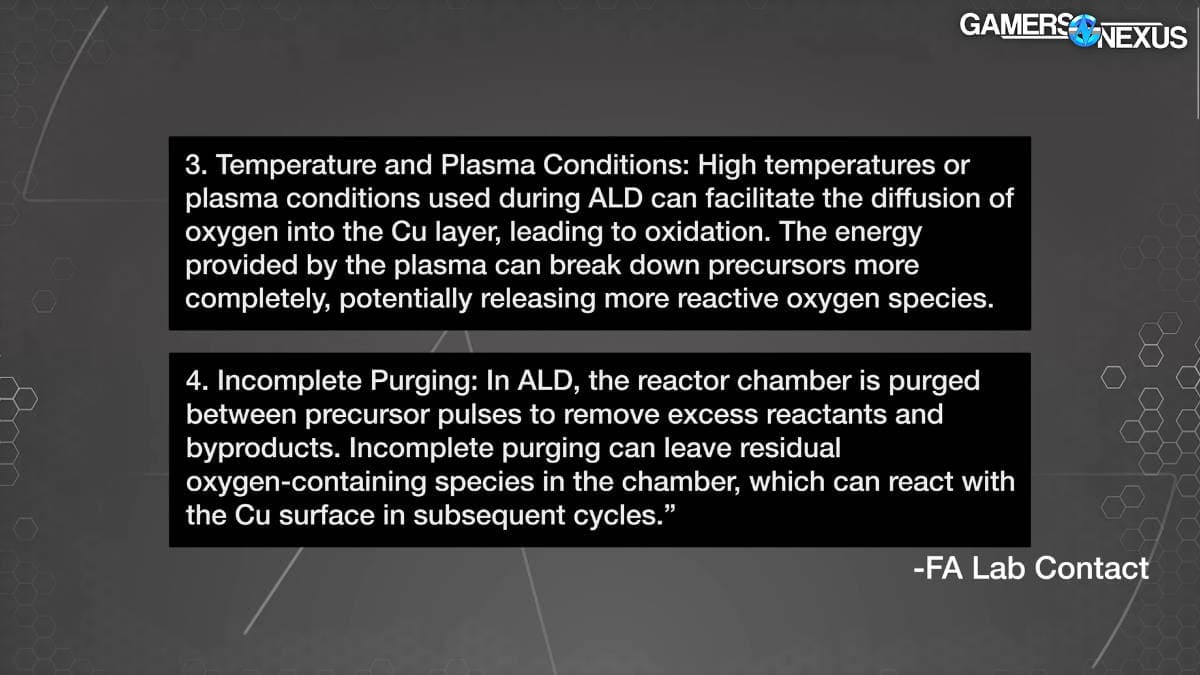“We can’t recommend Intel CPUs right now”: Gamers Nexus investigates 13th and 14th Gen instability

Table of Contents
With still no statement from Intel, it’s coming to independent reviewers and investigators to actually find out what is happening. As currently there has been plenty of news on Intel’s 13th and 14th Gen instability that has been causing widespread issues. These crashes seem to be caused by the CPUs and are highly prominent in the top end mostly. The likes of Warframe Staff have provided their insight already as their top Intel systems have had Nvidia driver crashes but all of them feature an Intel CPU.
Initially, Level1Techs looked into the game server hosts servers and found them to be recommending AMD systems and charging more for Intel ones as the crash rate and support started to rise in these Intel systems. It showed off a damning amount of failure rate for these. Now we have an update on a potential reason for these from Gamers Nexus and the reasons these might be happening.
Prime Day is finally here! Find all the biggest tech and PC deals below.
- Sapphire 11348-03-20G Pulse AMD Radeon™ RX 9070 XT Was $779 Now $739
- AMD Ryzen 7 7800X3D 8-Core, 16-Thread Desktop Processor Was $449 Now $341
- ASUS RTX™ 5060 OC Edition Graphics Card Was $379 Now $339
- LG 77-Inch Class OLED evo AI 4K C5 Series Smart TV Was $3,696 Now $2,796
- Intel® Core™ i7-14700K New Gaming Desktop Was $320.99 Now $274
- Lexar 2TB NM1090 w/HeatSink SSD PCIe Gen5x4 NVMe M.2 Was $281.97 Now $214.98
- Apple Watch Series 10 GPS + Cellular 42mm case Smartwatch Was $499.99 Now $379.99
- ASUS ROG Strix G16 (2025) 16" FHD, RTX 5060 gaming laptop Was $1,499.99 Now $1,274.99
- Apple iPad mini (A17 Pro): Apple Intelligence Was $499.99 Now $379.99
*Prices and savings subject to change. Click through to get the current prices.
Possible causes and more insights
In a tip from one of Intel’s top customers, this company has over 8 million affected 13th-gen CPUs. Ranging from the i5-13600K to the i9-13900KF with a failure rate between 10-25% failure rate. It has not yet looked at its 14th Gen failure rate, but that would put just the 13th Gen CPUs affected between 800,000 to 2 million. So it’s safe to say it’s quite a large problem to have out there.
GN is planning to do a failure analysis test, but since those take time has provided the information they have been receiving from these big Intel customers to the possible causes and workarounds. Now the lead theory seems to be a “defect mode in the fabrication process of the Raptor Lake CPUs during the via formation steps, which could cause high resistance vias due to oxidation” as suggested by the large Intel customer when talking to GN.

This issue would happen at the atomic layer deposition level when thallium nitride is put in to create the gates on the processors. That leads to oxidation on the gates, leading to a higher resistance and therefore failures when running long-term with higher voltages and power. This does give you one solution to the problem and they have suggested turning down the clocks and voltages to stop getting these crashes.
This also suggests memory clock problems, as Intel is potentially looking to lower the supported memory speeds. So if you’re trying to run fast DDR5 RAM that might be one of the issues as well. But all of it looks like there are faults in the manufacturing that are causing these instability woes and does mean Intel is not a good recommendation for a CPU at the moment. So when you’re looking at AMD’s Ryzen 9000 series release date and reviews, you should be aware of the problems for the competition when deciding between them.



